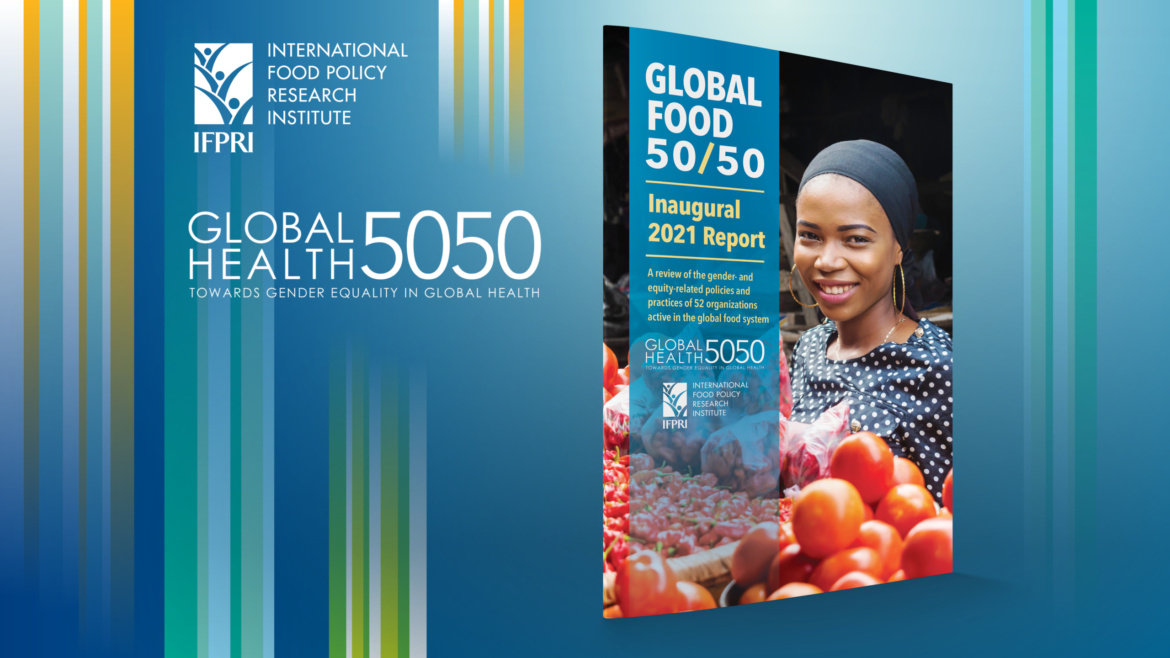Introducing the inaugural Global Food 50/50 Report
Today Global Health 50/50 is pleased to launch the inaugural Global Food 50/50 Report, a new and necessary mechanism for gender equality in global food systems. This report represents the first extension of the Global Health 50/50 model — from the health sector to the food sector — and has the potential to inform and drive institutional change for gender equality where progress is lagging.
The establishment of the Global Food 50/50 initiative is a response to broad stakeholder demand for a global food system that is accountable for progress toward gender equality. This global mechanism will monitor progress and hold food system organisations accountable for achieving gender equality in leadership and implementing policies and strategies for gender-just and sustainable food systems.
Global Food 50/50 is a joint initiative of Global Health 50/50 and the International Food Policy Research Institute. Global Food 50/50 emerges from and uses the methodology of the Global Health 50/50 initiative.
The Report presents measures of how well an initial sample of global food system organisations are acknowledging and addressing gender as a determinant of opportunity, access, and participation in the global food system.
It shows that organisational commitment to gender equality is high, and that over half of the organisations are transparent about their policies for shaping diverse, inclusive, and equitable working environments. The data also suggest, however, that rhetoric may be used as a substitute for action. Organisational leadership — CEOs and board chairs — remains disproportionately male and dominated by European and North American nationals. In the face of multiple global crises, a global food system dominated by individuals and institutions in high-income countries forgoes essential talent, knowledge, and expertise, with serious implications for progress toward a sustainable and equitable global food system.
The Report further finds that gender, as a key social dynamic that influences opportunity, access, and power in the global food system, remains under-appreciated, under-counted, and under-addressed. The data in this inaugural report can equip leaders at all levels — from communities to workforces to boards — to take concrete action, drive change, measure progress, and hold those in power accountable to their commitments to advance gender equality and transform food systems. A fairer, more gender-equal system will be best placed to end hunger, poverty, and inequality around the world.
“We must seize the momentum that has emerged through the Secretary-General-convened UN Food Systems Summit and use this moment to elevate the voices of women in food systems and correct structural gender inequalities. The Global Food 50/50 Report challenges all actors in the global food system to respond to this call. With the knowledge and analysis it provides, we can make meaningful progress toward food systems that are more just, equitable, and sustainable.” – Amina J. Mohammed, Deputy Secretary-General of the United Nations


